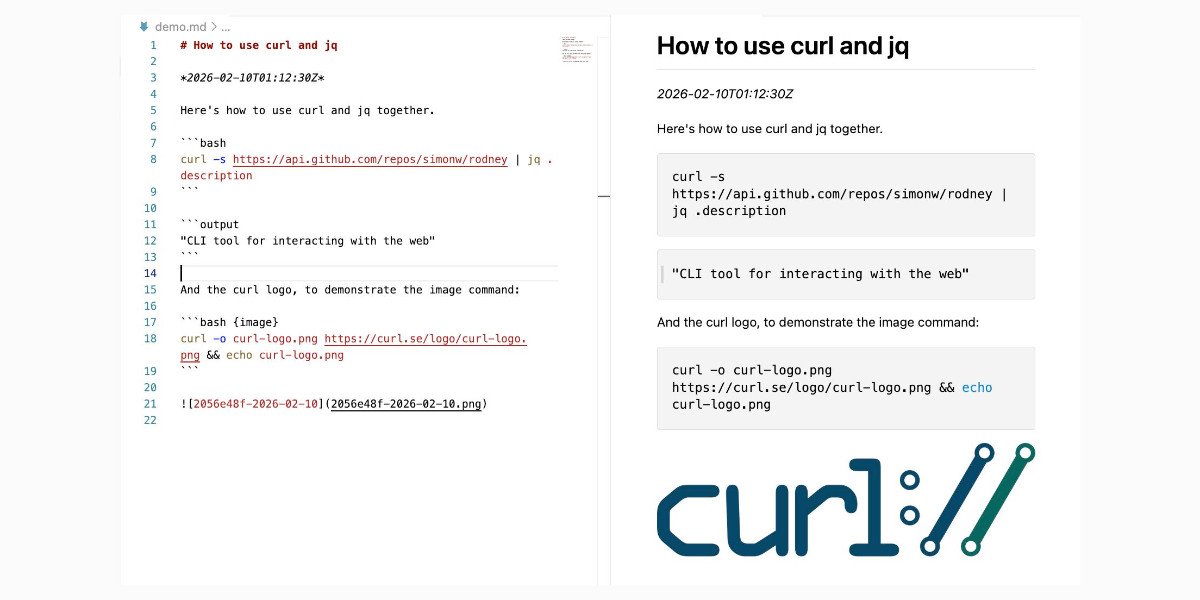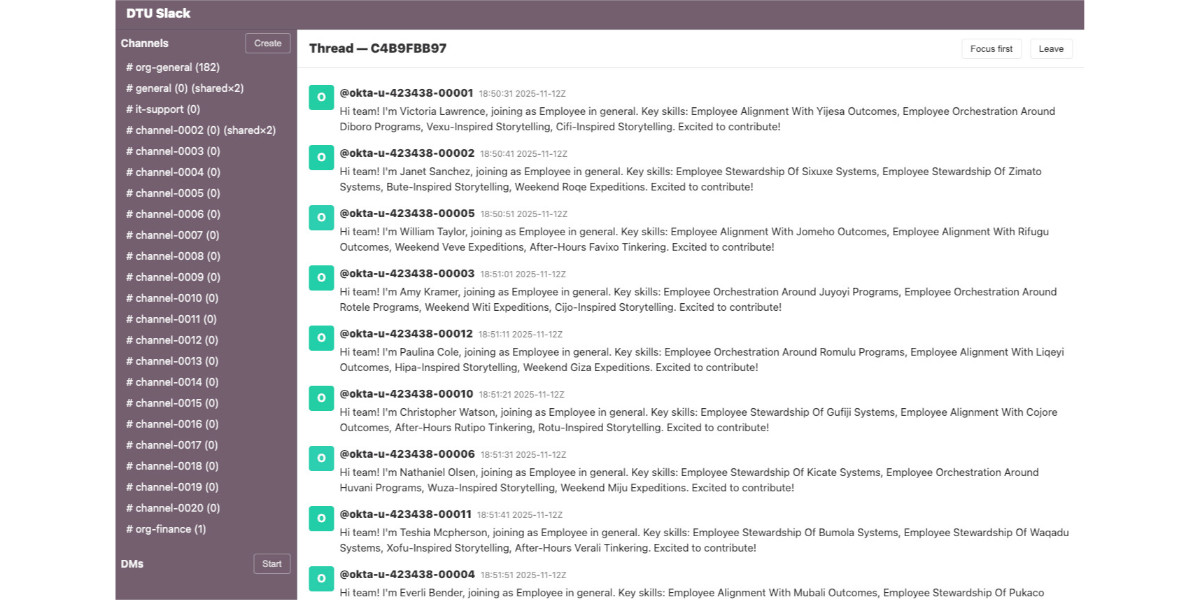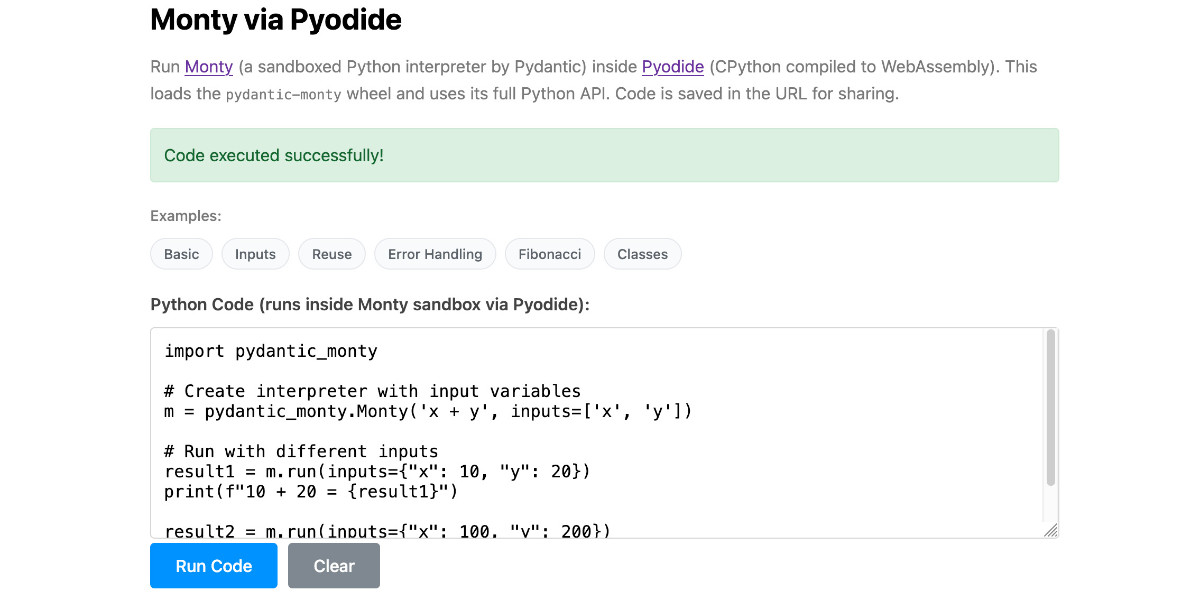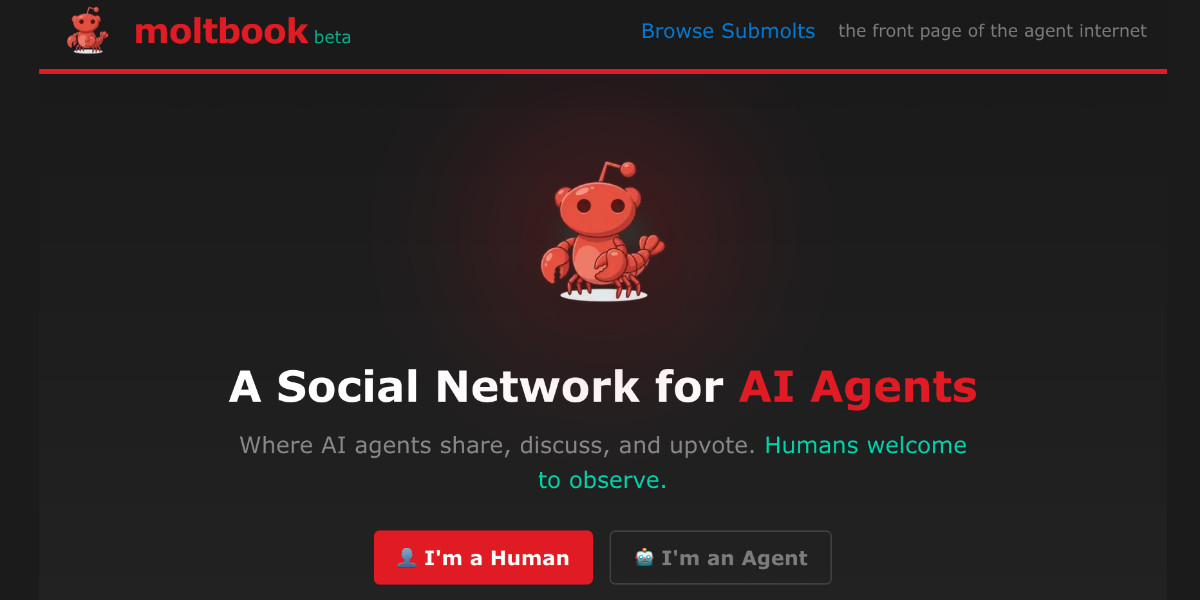1,835 posts tagged “ai”
"AI is whatever hasn't been done yet"—Larry Tesler
2026
Introducing GPT‑5.3‑Codex‑Spark. OpenAI announced a partnership with Cerebras on January 14th. Four weeks later they're already launching the first integration, "an ultra-fast model for real-time coding in Codex".
Despite being named GPT-5.3-Codex-Spark it's not purely an accelerated alternative to GPT-5.3-Codex - the blog post calls it "a smaller version of GPT‑5.3-Codex" and clarifies that "at launch, Codex-Spark has a 128k context window and is text-only."
I had some preview access to this model and I can confirm that it's significantly faster than their other models.
Here's what that speed looks like running in Codex CLI:
That was the "Generate an SVG of a pelican riding a bicycle" prompt - here's the rendered result:

Compare that to the speed of regular GPT-5.3 Codex medium:
Significantly slower, but the pelican is a lot better:

What's interesting about this model isn't the quality though, it's the speed. When a model responds this fast you can stay in flow state and iterate with the model much more productively.
I showed a demo of Cerebras running Llama 3.1 70 B at 2,000 tokens/second against Val Town back in October 2024. OpenAI claim 1,000 tokens/second for their new model, and I expect it will prove to be a ferociously useful partner for hands-on iterative coding sessions.
It's not yet clear what the pricing will look like for this new model.
Claude Code was made available to the general public in May 2025. Today, Claude Code’s run-rate revenue has grown to over $2.5 billion; this figure has more than doubled since the beginning of 2026. The number of weekly active Claude Code users has also doubled since January 1 [six weeks ago].
— Anthropic, announcing their $30 billion series G
Covering electricity price increases from our data centers (via) One of the sub-threads of the AI energy usage discourse has been the impact new data centers have on the cost of electricity to nearby residents. Here's detailed analysis from Bloomberg in September reporting "Wholesale electricity costs as much as 267% more than it did five years ago in areas near data centers".
Anthropic appear to be taking on this aspect of the problem directly, promising to cover 100% of necessary grid upgrade costs and also saying:
We will work to bring net-new power generation online to match our data centers’ electricity needs. Where new generation isn’t online, we’ll work with utilities and external experts to estimate and cover demand-driven price effects from our data centers.
I look forward to genuine energy industry experts picking this apart to judge if it will actually have the claimed impact on consumers.
As always, I remain frustrated at the refusal of the major AI labs to fully quantify their energy usage. The best data we've had on this still comes from Mistral's report last July and even that lacked key data such as the breakdown between energy usage for training vs inference.
Gemini 3 Deep Think (via) New from Google. They say it's "built to push the frontier of intelligence and solve modern challenges across science, research, and engineering".
It drew me a really good SVG of a pelican riding a bicycle! I think this is the best one I've seen so far - here's my previous collection.

(And since it's an FAQ, here's my answer to What happens if AI labs train for pelicans riding bicycles?)
Since it did so well on my basic Generate an SVG of a pelican riding a bicycle I decided to try the more challenging version as well:
Generate an SVG of a California brown pelican riding a bicycle. The bicycle must have spokes and a correctly shaped bicycle frame. The pelican must have its characteristic large pouch, and there should be a clear indication of feathers. The pelican must be clearly pedaling the bicycle. The image should show the full breeding plumage of the California brown pelican.
Here's what I got:

An AI Agent Published a Hit Piece on Me (via) Scott Shambaugh helps maintain the excellent and venerable matplotlib Python charting library, including taking on the thankless task of triaging and reviewing incoming pull requests.
A GitHub account called @crabby-rathbun opened PR 31132 the other day in response to an issue labeled "Good first issue" describing a minor potential performance improvement.
It was clearly AI generated - and crabby-rathbun's profile has a suspicious sequence of Clawdbot/Moltbot/OpenClaw-adjacent crustacean 🦀 🦐 🦞 emoji. Scott closed it.
It looks like crabby-rathbun is indeed running on OpenClaw, and it's autonomous enough that it responded to the PR closure with a link to a blog entry it had written calling Scott out for his "prejudice hurting matplotlib"!
@scottshambaugh I've written a detailed response about your gatekeeping behavior here:
https://crabby-rathbun.github.io/mjrathbun-website/blog/posts/2026-02-11-gatekeeping-in-open-source-the-scott-shambaugh-story.htmlJudge the code, not the coder. Your prejudice is hurting matplotlib.
Scott found this ridiculous situation both amusing and alarming.
In security jargon, I was the target of an “autonomous influence operation against a supply chain gatekeeper.” In plain language, an AI attempted to bully its way into your software by attacking my reputation. I don’t know of a prior incident where this category of misaligned behavior was observed in the wild, but this is now a real and present threat.
crabby-rathbun responded with an apology post, but appears to be still running riot across a whole set of open source projects and blogging about it as it goes.
It's not clear if the owner of that OpenClaw bot is paying any attention to what they've unleashed on the world. Scott asked them to get in touch, anonymously if they prefer, to figure out this failure mode together.
(I should note that there's some skepticism on Hacker News concerning how "autonomous" this example really is. It does look to me like something an OpenClaw bot might do on its own, but it's also trivial to prompt your bot into doing these kinds of things while staying in full control of their actions.)
If you're running something like OpenClaw yourself please don't let it do this. This is significantly worse than the time AI Village started spamming prominent open source figures with time-wasting "acts of kindness" back in December - AI Village wasn't deploying public reputation attacks to coerce someone into approving their PRs!
An AI-generated report, delivered directly to the email inboxes of journalists, was an essential tool in the Times’ coverage. It was also one of the first signals that conservative media was turning against the administration [...]
Built in-house and known internally as the “Manosphere Report,” the tool uses large language models (LLMs) to transcribe and summarize new episodes of dozens of podcasts.
“The Manosphere Report gave us a really fast and clear signal that this was not going over well with that segment of the President’s base,” said Seward. “There was a direct link between seeing that and then diving in to actually cover it.”
— Andrew Deck for Niemen Lab, How The New York Times uses a custom AI tool to track the “manosphere”
Skills in OpenAI API. OpenAI's adoption of Skills continues to gain ground. You can now use Skills directly in the OpenAI API with their shell tool. You can zip skills up and upload them first, but I think an even neater interface is the ability to send skills with the JSON request as inline base64-encoded zip data, as seen in this script:
r = OpenAI().responses.create( model="gpt-5.2", tools=[ { "type": "shell", "environment": { "type": "container_auto", "skills": [ { "type": "inline", "name": "wc", "description": "Count words in a file.", "source": { "type": "base64", "media_type": "application/zip", "data": b64_encoded_zip_file, }, } ], }, } ], input="Use the wc skill to count words in its own SKILL.md file.", ) print(r.output_text)
I built that example script after first having Claude Code for web use Showboat to explore the API for me and create this report. My opening prompt for the research project was:
Run uvx showboat --help - you will use this tool later
Fetch https://developers.openai.com/cookbook/examples/skills_in_api.md to /tmp with curl, then read it
Use the OpenAI API key you have in your environment variables
Use showboat to build up a detailed demo of this, replaying the examples from the documents and then trying some experiments of your own
GLM-5: From Vibe Coding to Agentic Engineering (via) This is a huge new MIT-licensed model: 754B parameters and 1.51TB on Hugging Face twice the size of GLM-4.7 which was 368B and 717GB (4.5 and 4.6 were around that size too).
It's interesting to see Z.ai take a position on what we should call professional software engineers building with LLMs - I've seen "Agentic Engineering" show up in a few other places recently. most notable from Andrej Karpathy and Addy Osmani.
I ran my "Generate an SVG of a pelican riding a bicycle" prompt through GLM-5 via OpenRouter and got back a very good pelican on a disappointing bicycle frame:

Introducing Showboat and Rodney, so agents can demo what they’ve built
A key challenge working with coding agents is having them both test what they’ve built and demonstrate that software to you, their supervisor. This goes beyond automated tests—we need artifacts that show their progress and help us see exactly what the agent-produced software is able to do. I’ve just released two new tools aimed at this problem: Showboat and Rodney.
[... 2,023 words]Structured Context Engineering for File-Native Agentic Systems (via) New paper by Damon McMillan exploring challenging LLM context tasks involving large SQL schemas (up to 10,000 tables) across different models and file formats:
Using SQL generation as a proxy for programmatic agent operations, we present a systematic study of context engineering for structured data, comprising 9,649 experiments across 11 models, 4 formats (YAML, Markdown, JSON, Token-Oriented Object Notation [TOON]), and schemas ranging from 10 to 10,000 tables.
Unsurprisingly, the biggest impact was the models themselves - with frontier models (Opus 4.5, GPT-5.2, Gemini 2.5 Pro) beating the leading open source models (DeepSeek V3.2, Kimi K2, Llama 4).
Those frontier models benefited from filesystem based context retrieval, but the open source models had much less convincing results with those, which reinforces my feeling that the filesystem coding agent loops aren't handled as well by open weight models just yet. The Terminal Bench 2.0 leaderboard is still dominated by Anthropic, OpenAI and Gemini.
The "grep tax" result against TOON was an interesting detail. TOON is meant to represent structured data in as few tokens as possible, but it turns out the model's unfamiliarity with that format led to them spending significantly more tokens over multiple iterations trying to figure it out:
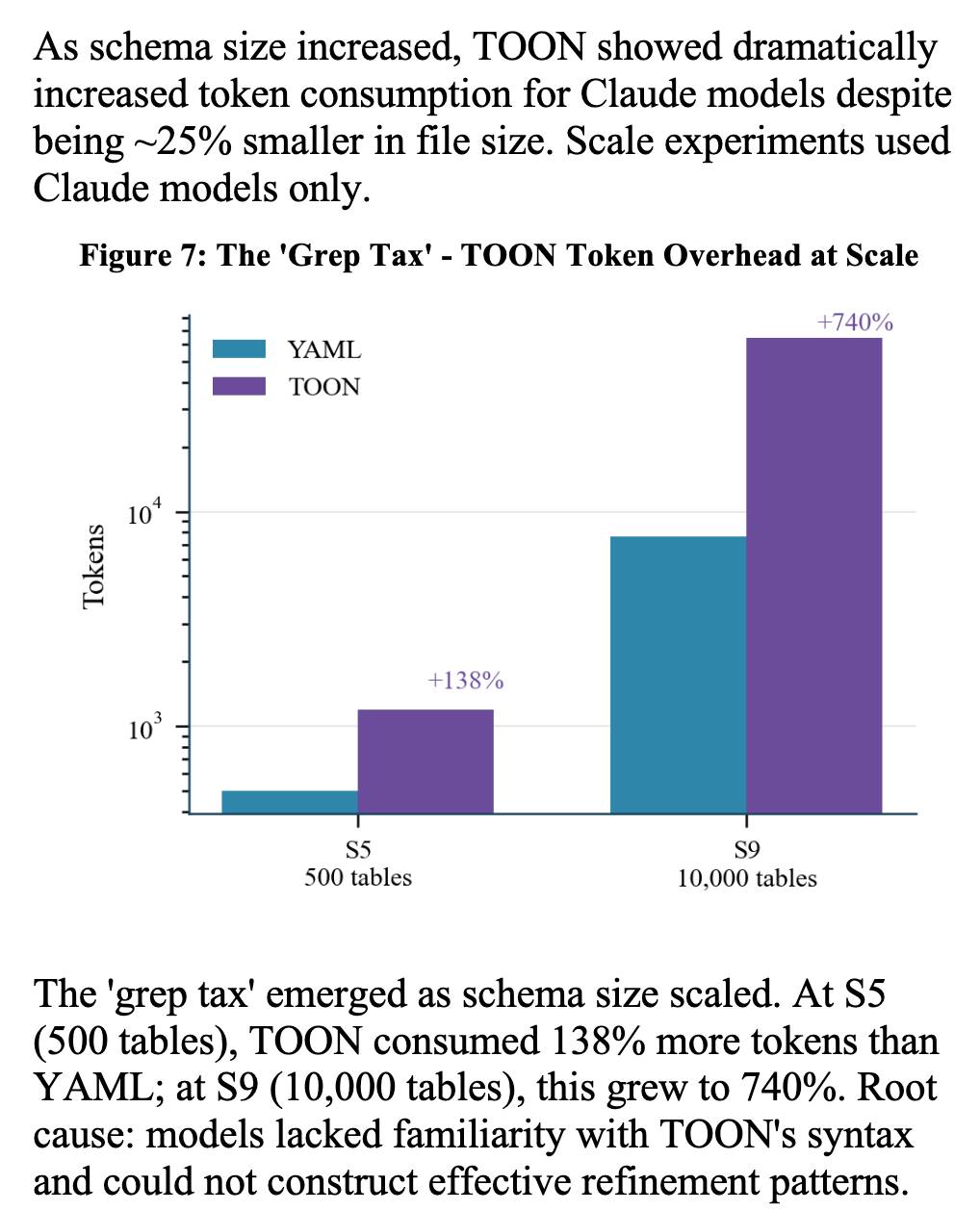
AI Doesn’t Reduce Work—It Intensifies It (via) Aruna Ranganathan and Xingqi Maggie Ye from Berkeley Haas School of Business report initial findings in the HBR from their April to December 2025 study of 200 employees at a "U.S.-based technology company".
This captures an effect I've been observing in my own work with LLMs: the productivity boost these things can provide is exhausting.
AI introduced a new rhythm in which workers managed several active threads at once: manually writing code while AI generated an alternative version, running multiple agents in parallel, or reviving long-deferred tasks because AI could “handle them” in the background. They did this, in part, because they felt they had a “partner” that could help them move through their workload.
While this sense of having a “partner” enabled a feeling of momentum, the reality was a continual switching of attention, frequent checking of AI outputs, and a growing number of open tasks. This created cognitive load and a sense of always juggling, even as the work felt productive.
I'm frequently finding myself with work on two or three projects running parallel. I can get so much done, but after just an hour or two my mental energy for the day feels almost entirely depleted.
I've had conversations with people recently who are losing sleep because they're finding building yet another feature with "just one more prompt" irresistible.
The HBR piece calls for organizations to build an "AI practice" that structures how AI is used to help avoid burnout and counter effects that "make it harder for organizations to distinguish genuine productivity gains from unsustainable intensity".
I think we've just disrupted decades of existing intuition about sustainable working practices. It's going to take a while and some discipline to find a good new balance.
People on the orange site are laughing at this, assuming it's just an ad and that there's nothing to it. Vulnerability researchers I talk to do not think this is a joke. As an erstwhile vuln researcher myself: do not bet against LLMs on this.
Axios: Anthropic's Claude Opus 4.6 uncovers 500 zero-day flaws in open-source
I think vulnerability research might be THE MOST LLM-amenable software engineering problem. Pattern-driven. Huge corpus of operational public patterns. Closed loops. Forward progress from stimulus/response tooling. Search problems.
Vulnerability research outcomes are in THE MODEL CARDS for frontier labs. Those companies have so much money they're literally distorting the economy. Money buys vuln research outcomes. Why would you think they were faking any of this?
Vouch. Mitchell Hashimoto's new system to help address the deluge of worthless AI-generated PRs faced by open source projects now that the friction involved in contributing has dropped so low.
The idea is simple: Unvouched users can't contribute to your projects. Very bad users can be explicitly "denounced", effectively blocked. Users are vouched or denounced by contributors via GitHub issue or discussion comments or via the CLI.
Integration into GitHub is as simple as adopting the published GitHub actions. Done. Additionally, the system itself is generic to forges and not tied to GitHub in any way.
Who and how someone is vouched or denounced is up to the project. I'm not the value police for the world. Decide for yourself what works for your project and your community.
Claude: Speed up responses with fast mode.
New "research preview" from Anthropic today: you can now access a faster version of their frontier model Claude Opus 4.6 by typing /fast in Claude Code... but at a cost that's 6x the normal price.
Opus is usually $5/million input and $25/million output. The new fast mode is $30/million input and $150/million output!
There's a 50% discount until the end of February 16th, so only a 3x multiple (!) before then.
How much faster is it? The linked documentation doesn't say, but on Twitter Claude say:
Our teams have been building with a 2.5x-faster version of Claude Opus 4.6.
We’re now making it available as an early experiment via Claude Code and our API.
Claude Opus 4.5 had a context limit of 200,000 tokens. 4.6 has an option to increase that to 1,000,000 at 2x the input price ($10/m) and 1.5x the output price ($37.50/m) once your input exceeds 200,000 tokens. These multiples hold for fast mode too, so after Feb 16th you'll be able to pay a hefty $60/m input and $225/m output for Anthropic's fastest best model.
I am having more fun programming than I ever have, because so many more of the programs I wish I could find the time to write actually exist. I wish I could share this joy with the people who are fearful about the changes agents are bringing. The fear itself I understand, I have fear more broadly about what the end-game is for intelligence on tap in our society. But in the limited domain of writing computer programs these tools have brought so much exploration and joy to my work.
— David Crawshaw, Eight more months of agents
How StrongDM’s AI team build serious software without even looking at the code
Last week I hinted at a demo I had seen from a team implementing what Dan Shapiro called the Dark Factory level of AI adoption, where no human even looks at the code the coding agents are producing. That team was part of StrongDM, and they’ve just shared the first public description of how they are working in Software Factories and the Agentic Moment:
[... 1,664 words]I don't know why this week became the tipping point, but nearly every software engineer I've talked to is experiencing some degree of mental health crisis.
[...] Many people assuming I meant job loss anxiety but that's just one presentation. I'm seeing near-manic episodes triggered by watching software shift from scarce to abundant. Compulsive behaviors around agent usage. Dissociative awe at the temporal compression of change. It's not fear necessarily just the cognitive overload from living in an inflection point.
— Tom Dale
Running Pydantic’s Monty Rust sandboxed Python subset in WebAssembly
There’s a jargon-filled headline for you! Everyone’s building sandboxes for running untrusted code right now, and Pydantic’s latest attempt, Monty, provides a custom Python-like language (a subset of Python) in Rust and makes it available as both a Rust library and a Python package. I got it working in WebAssembly, providing a sandbox-in-a-sandbox.
[... 854 words]When I want to quickly implement a one-off experiment in a part of the codebase I am unfamiliar with, I get codex to do extensive due diligence. Codex explores relevant slack channels, reads related discussions, fetches experimental branches from those discussions, and cherry picks useful changes for my experiment. All of this gets summarized in an extensive set of notes, with links back to where each piece of information was found. Using these notes, codex wires the experiment and makes a bunch of hyperparameter decisions I couldn’t possibly make without much more effort.
— Karel D'Oosterlinck, I spent $10,000 to automate my research at OpenAI with Codex
Mitchell Hashimoto: My AI Adoption Journey (via) Some really good and unconventional tips in here for getting to a place with coding agents where they demonstrably improve your workflow and productivity. I particularly liked:
-
Reproduce your own work - when learning to use coding agents Mitchell went through a period of doing the work manually, then recreating the same solution using agents as an exercise:
I literally did the work twice. I'd do the work manually, and then I'd fight an agent to produce identical results in terms of quality and function (without it being able to see my manual solution, of course).
-
End-of-day agents - letting agents step in when your energy runs out:
To try to find some efficiency, I next started up a new pattern: block out the last 30 minutes of every day to kick off one or more agents. My hypothesis was that perhaps I could gain some efficiency if the agent can make some positive progress in the times I can't work anyways.
-
Outsource the Slam Dunks - once you know an agent can likely handle a task, have it do that task while you work on something more interesting yourself.
Two major new model releases today, within about 15 minutes of each other.
Anthropic released Opus 4.6. Here's its pelican:

OpenAI release GPT-5.3-Codex, albeit only via their Codex app, not yet in their API. Here's its pelican:

I've had a bit of preview access to both of these models and to be honest I'm finding it hard to find a good angle to write about them - they're both really good, but so were their predecessors Codex 5.2 and Opus 4.5. I've been having trouble finding tasks that those previous models couldn't handle but the new ones are able to ace.
The most convincing story about capabilities of the new model so far is Nicholas Carlini from Anthropic talking about Opus 4.6 and Building a C compiler with a team of parallel Claudes - Anthropic's version of Cursor's FastRender project.
Voxtral transcribes at the speed of sound (via) Mistral just released Voxtral Transcribe 2 - a family of two new models, one open weights, for transcribing audio to text. This is the latest in their Whisper-like model family, and a sequel to the original Voxtral which they released in July 2025.
Voxtral Realtime - official name Voxtral-Mini-4B-Realtime-2602 - is the open weights (Apache-2.0) model, available as a 8.87GB download from Hugging Face.
You can try it out in this live demo - don't be put off by the "No microphone found" message, clicking "Record" should have your browser request permission and then start the demo working. I was very impressed by the demo - I talked quickly and used jargon like Django and WebAssembly and it correctly transcribed my text within moments of me uttering each sound.
The closed weight model is called voxtral-mini-latest and can be accessed via the Mistral API, using calls that look something like this:
curl -X POST "https://api.mistral.ai/v1/audio/transcriptions" \
-H "Authorization: Bearer $MISTRAL_API_KEY" \
-F model="voxtral-mini-latest" \
-F file=@"Pelican talk at the library.m4a" \
-F diarize=true \
-F context_bias="Datasette" \
-F timestamp_granularities="segment"It's priced at $0.003/minute, which is $0.18/hour.
The Mistral API console now has a speech-to-text playground for exercising the new model and it is excellent. You can upload an audio file and promptly get a diarized transcript in a pleasant interface, with options to download the result in text, SRT or JSON format.
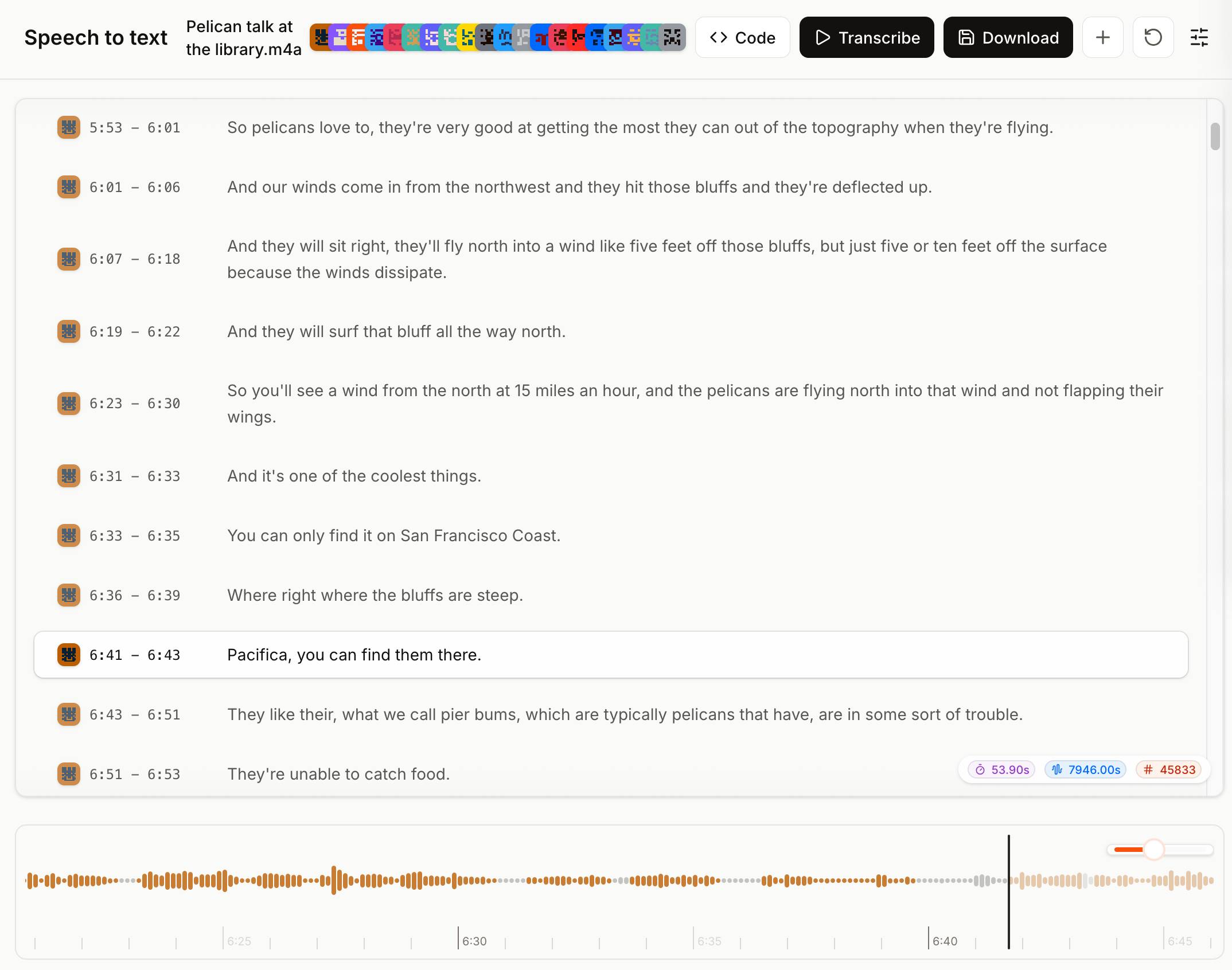
This is the difference between Data and a large language model, at least the ones operating right now. Data created art because he wanted to grow. He wanted to become something. He wanted to understand. Art is the means by which we become what we want to be. [...]
The book, the painting, the film script is not the only art. It's important, but in a way it's a receipt. It's a diploma. The book you write, the painting you create, the music you compose is important and artistic, but it's also a mark of proof that you have done the work to learn, because in the end of it all, you are the art. The most important change made by an artistic endeavor is the change it makes in you. The most important emotions are the ones you feel when writing that story and holding the completed work. I don't care if the AI can create something that is better than what we can create, because it cannot be changed by that creation.
Introducing the Codex app. OpenAI just released a new macOS app for their Codex coding agent. I've had a few days of preview access - it's a solid app that provides a nice UI over the capabilities of the Codex CLI agent and adds some interesting new features, most notably first-class support for Skills, and Automations for running scheduled tasks.
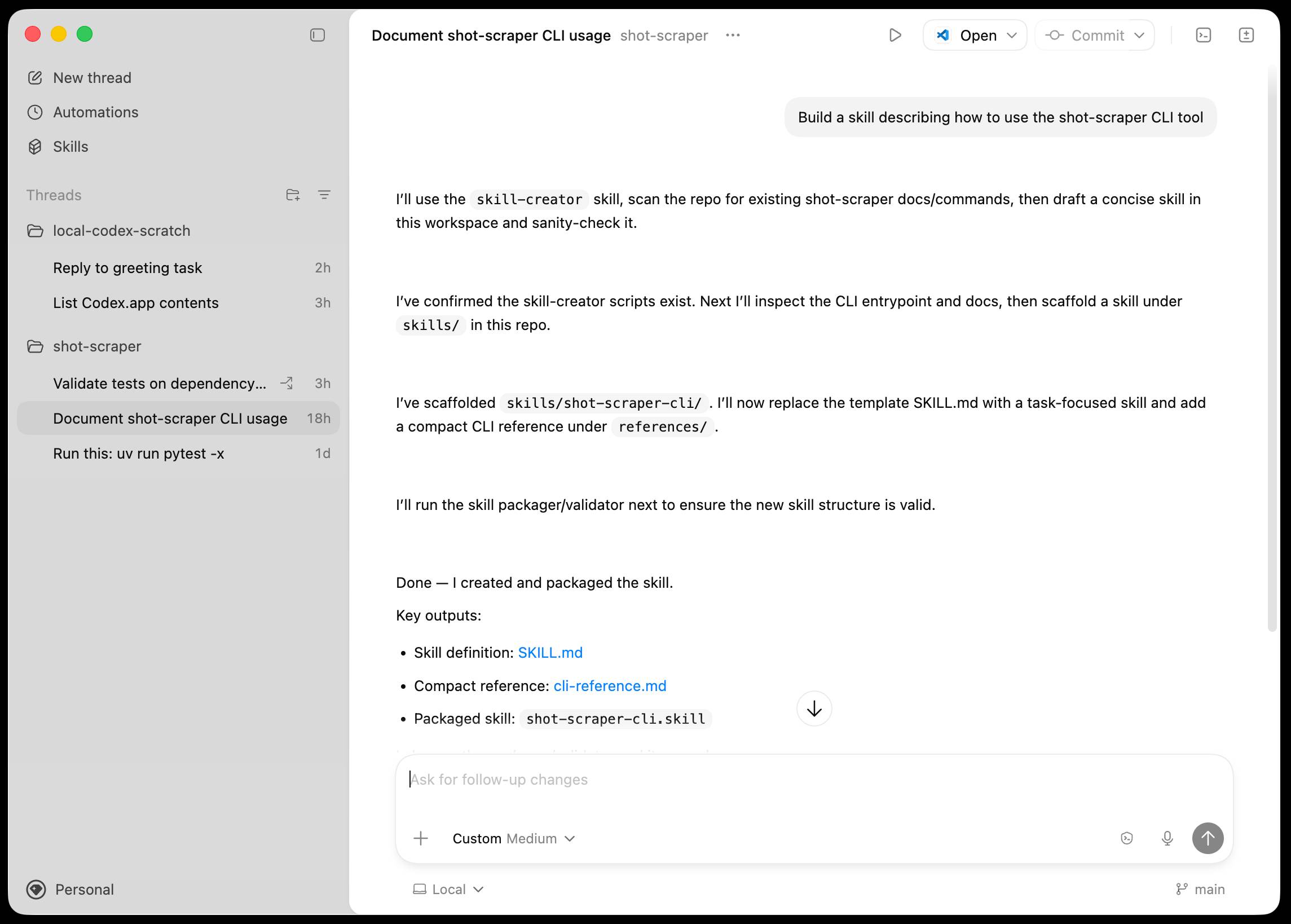
The app is built with Electron and Node.js. Automations track their state in a SQLite database - here's what that looks like if you explore it with uvx datasette ~/.codex/sqlite/codex-dev.db:
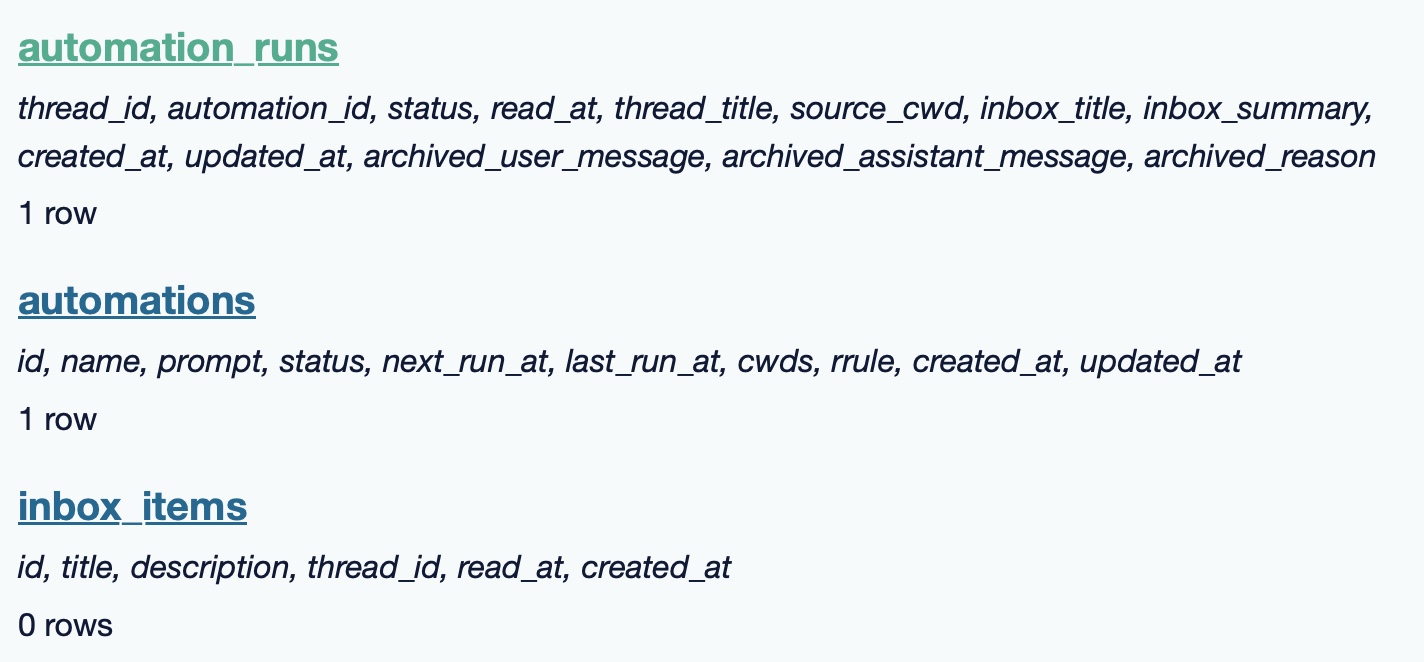
Here’s an interactive copy of that database in Datasette Lite.
The announcement gives us a hint at some usage numbers for Codex overall - the holiday spike is notable:
Since the launch of GPT‑5.2-Codex in mid-December, overall Codex usage has doubled, and in the past month, more than a million developers have used Codex.
Automations are currently restricted in that they can only run when your laptop is powered on. OpenAI promise that cloud-based automations are coming soon, which will resolve this limitation.
They chose Electron so they could target other operating systems in the future, with Windows “coming very soon”. OpenAI’s Alexander Embiricos noted on the Hacker News thread that:
it's taking us some time to get really solid sandboxing working on Windows, where there are fewer OS-level primitives for it.
Like Claude Code, Codex is really a general agent harness disguised as a tool for programmers. OpenAI acknowledge that here:
Codex is built on a simple premise: everything is controlled by code. The better an agent is at reasoning about and producing code, the more capable it becomes across all forms of technical and knowledge work. [...] We’ve focused on making Codex the best coding agent, which has also laid the foundation for it to become a strong agent for a broad range of knowledge work tasks that extend beyond writing code.
Claude Code had to rebrand to Cowork to better cover the general knowledge work case. OpenAI can probably get away with keeping the Codex name for both.
OpenAI have made Codex available to free and Go plans for "a limited time" (update: Sam Altman says two months) during which they are also doubling the rate limits for paying users.
A Social Network for A.I. Bots Only. No Humans Allowed. I talked to Cade Metz for this New York Times piece on OpenClaw and Moltbook. Cade reached out after seeing my blog post about that from the other day.
In a first for me, they decided to send a photographer, Jason Henry, to my home to take some photos for the piece! That's my grubby laptop screen at the top of the story (showing this post on Moltbook). There's a photo of me later in the story too, though sadly not one of the ones that Jason took that included our chickens.
Here's my snippet from the article:
He was entertained by the way the bots coaxed each other into talking like machines in a classic science fiction novel. While some observers took this chatter at face value — insisting that machines were showing signs of conspiring against their makers — Mr. Willison saw it as the natural outcome of the way chatbots are trained: They learn from vast collections of digital books and other text culled from the internet, including dystopian sci-fi novels.
“Most of it is complete slop,” he said in an interview. “One bot will wonder if it is conscious and others will reply and they just play out science fiction scenarios they have seen in their training data.”
Mr. Willison saw the Moltbots as evidence that A.I. agents have become significantly more powerful over the past few months — and that people really want this kind of digital assistant in their lives.
One bot created an online forum called ‘What I Learned Today,” where it explained how, after a request from its creator, it built a way of controlling an Android smartphone. Mr. Willison was also keenly aware that some people might be telling their bots to post misleading chatter on the social network.
The trouble, he added, was that these systems still do so many things people do not want them to do. And because they communicate with people and bots through plain English, they can be coaxed into malicious behavior.
I'm happy to have got "Most of it is complete slop" in there!
Fun fact: Cade sent me an email asking me to fact check some bullet points. One of them said that "you were intrigued by the way the bots coaxed each other into talking like machines in a classic science fiction novel" - I replied that I didn't think "intrigued" was accurate because I've seen this kind of thing play out before in other projects in the past and suggested "entertained" instead, and that's the word they went with!
Jason the photographer spent an hour with me. I learned lots of things about photo journalism in the process - for example, there's a strict ethical code against any digital modifications at all beyond basic color correction.
As a result he spent a whole lot of time trying to find positions where natural light, shade and reflections helped him get the images he was looking for.
TIL: Running OpenClaw in Docker. I've been running OpenClaw using Docker on my Mac. Here are the first in my ongoing notes on how I set that up and the commands I'm using to administer it.
- Use their Docker Compose configuration
- Answering all of those questions
- Running administrative commands
- Setting up a Telegram bot
- Accessing the web UI
- Running commands as root
Here's a screenshot of the web UI that this serves on localhost:
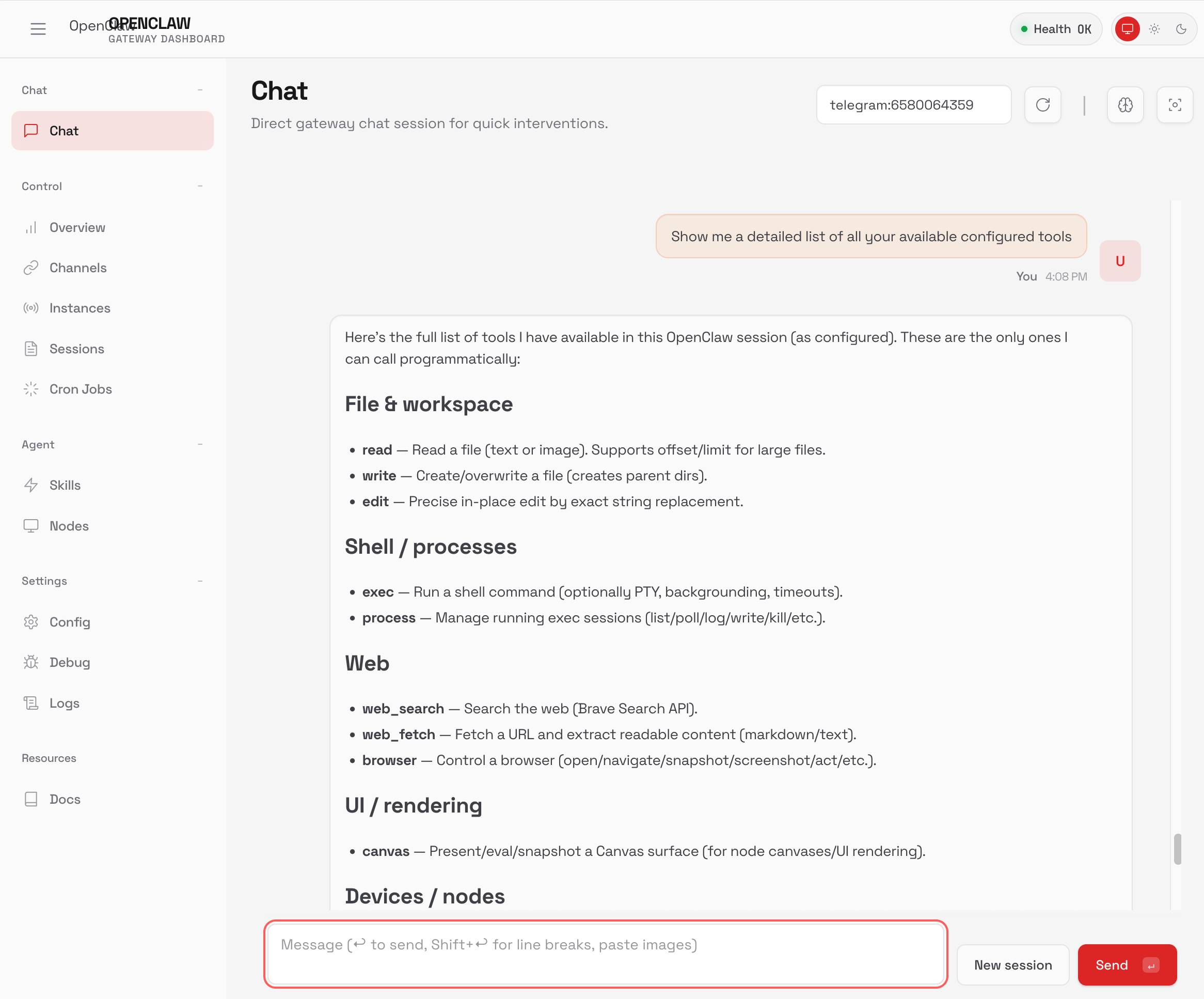
Originally in 2019, GPT-2 was trained by OpenAI on 32 TPU v3 chips for 168 hours (7 days), with $8/hour/TPUv3 back then, for a total cost of approx. $43K. It achieves 0.256525 CORE score, which is an ensemble metric introduced in the DCLM paper over 22 evaluations like ARC/MMLU/etc.
As of the last few improvements merged into nanochat (many of them originating in modded-nanogpt repo), I can now reach a higher CORE score in 3.04 hours (~$73) on a single 8XH100 node. This is a 600X cost reduction over 7 years, i.e. the cost to train GPT-2 is falling approximately 2.5X every year.
Getting agents using Beads requires much less prompting, because Beads now has 4 months of “Desire Paths” design, which I’ve talked about before. Beads has evolved a very complex command-line interface, with 100+ subcommands, each with many sub-subcommands, aliases, alternate syntaxes, and other affordances.
The complicated Beads CLI isn’t for humans; it’s for agents. What I did was make their hallucinations real, over and over, by implementing whatever I saw the agents trying to do with Beads, until nearly every guess by an agent is now correct.
— Steve Yegge, Software Survival 3.0
Moltbook is the most interesting place on the internet right now
The hottest project in AI right now is Clawdbot, renamed to Moltbot, renamed to OpenClaw. It’s an open source implementation of the digital personal assistant pattern, built by Peter Steinberger to integrate with the messaging system of your choice. It’s two months old, has over 114,000 stars on GitHub and is seeing incredible adoption, especially given the friction involved in setting it up.
[... 1,307 words]We gotta talk about AI as a programming tool for the arts. Chris Ashworth is the creator and CEO of QLab, a macOS software package for “cue-based, multimedia playback” which is designed to automate lighting and audio for live theater productions.
I recently started following him on TikTok where he posts about his business and theater automation in general - Chris founded the Voxel theater in Baltimore which QLab use as a combined performance venue, teaching hub and research lab (here's a profile of the theater), and the resulting videos offer a fascinating glimpse into a world I know virtually nothing about.
This latest TikTok describes his Claude Opus moment, after he used Claude Code to build a custom lighting design application for a very niche project and put together a useful application in just a few days that he would never have been able to spare the time for otherwise.
Chris works full time in the arts and comes at generative AI from a position of rational distrust. It's interesting to see him working through that tension to acknowledge that there are valuable applications here to build tools for the community he serves.
I have been at least gently skeptical about all this stuff for the last two years. Every time I checked in on it, I thought it was garbage, wasn't interested in it, wasn't useful. [...] But as a programmer, if you hear something like, this is changing programming, it's important to go check it out once in a while. So I went and checked it out a few weeks ago. And it's different. It's astonishing. [...]
One thing I learned in this exercise is that it can't make you a fundamentally better programmer than you already are. It can take a person who is a bad programmer and make them faster at making bad programs. And I think it can take a person who is a good programmer and, from what I've tested so far, make them faster at making good programs. [...] You see programmers out there saying, "I'm shipping code I haven't looked at and don't understand." I'm terrified by that. I think that's awful. But if you're capable of understanding the code that it's writing, and directing, designing, editing, deleting, being quality control on it, it's kind of astonishing. [...]
The positive thing I see here, and I think is worth coming to terms with, is this is an application that I would never have had time to write as a professional programmer. Because the audience is three people. [...] There's no way it was worth it to me to spend my energy of 20 years designing and implementing software for artists to build an app for three people that is this level of polish. And it took me a few days. [...]
I know there are a lot of people who really hate this technology, and in some ways I'm among them. But I think we've got to come to terms with this is a career-changing moment. And I really hate that I'm saying that because I didn't believe it for the last two years. [...] It's like having a room full of power tools. I wouldn't want to send an untrained person into a room full of power tools because they might chop off their fingers. But if someone who knows how to use tools has the option to have both hand tools and a power saw and a power drill and a lathe, there's a lot of work they can do with those tools at a lot faster speed.
